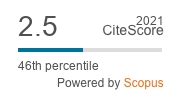Optimisation of Discrete Processes with Bounded Control
DOI:
https://doi.org/10.5755/j01.itc.47.4.19933Keywords:
optimal control problem, Lagrange multiplier method, discrete systems, quadratic functional, production and storage of productsAbstract
The study considers the problem of optimal control for linear discrete systems with a free right end of the trajectory and constraints on control. A new approach to constructing a discrete system is proposed and control is determined at discrete instants of time. Necessary and sufficient conditions for optimality are obtained and a method is proposed for the exact solution of the boundary value problem, which is reduced to solving a finite number of systems of algebraic equations. The proposed method for solving the optimal control problem for a discrete system allows to represent the desired optimal control in the form of synthesising control. For this, a positively definite symmetric matrix is defined that satisfies a difference equation of Riccati type. An algorithm for constructing control for discrete systems is developed, based on the feedback principle, taking into account constraints on the values of controls. The problem is solved using the Lagrange multipliers of a special form, which depend on the phase coordinates at discrete instants of time. The proposed method for solving the problem of optimal control with constraints on control values is implemented on a computer with an application package and tested for the task of planning production and storage of products. Numerical calculations are carried out on a computer using the described problem-solving algorithm in which it is possible to take into account restrictions on the values of controls. Optimal values are determined and appropriate schedules of the production plan, storage of products and limited management at discrete instants of time are constructed.
Downloads
Published
Issue
Section
License
Copyright terms are indicated in the Republic of Lithuania Law on Copyright and Related Rights, Articles 4-37.





